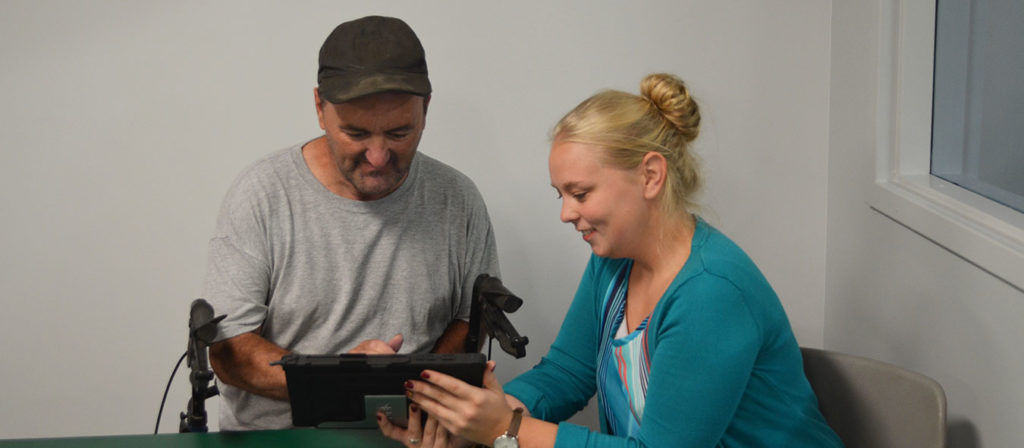Marshall University now offers a multidisciplinary clinic for patients with ALS, or amyotrophic lateral sclerosis, more commonly referred to as Lou Gehrig’s disease.
The clinic is open to patients from noon to 4 p.m. on the third Friday of every month at the Marshall University Speech and Hearing Center, located in Smith Hall 143 on the Marshall University Huntington campus. The clinic’s care team consists of an on-site neurologist, physical therapist, speech therapist, dietitian, respiratory therapist and social worker.
ALS is a degenerative disease of the nervous system that leads to loss of muscle control and eventually the ability to speak, eat, move and breathe.
“Research has shown improved life expectancy related to multidisciplinary clinics for ALS, so we are thrilled to provide this much-needed service close to home,” said Clinic Coordinator Sarah Clemins, an assistant professor in the department of communication disorders.
Dr. Dominika Lozowska, a board-certified, fellowship-trained neurologist with Marshall Health and assistant professor in the department of neurology, leads the clinic’s neurology services. The convenience and expertise of a multidisciplinary ALS clinic is a much-needed resource in southern West Virginia, she said.
“There are many patients suffering from motor neuron disease who need the type of services this clinic provides,” Lozowska said. “By establishing with a neuromuscular clinic, we’re giving our patients access to the type of care they need—a team of experienced, qualified providers facilitating their therapies and closely monitoring disease progression.”
During their first clinic visit, each patient will receive a comprehensive assessment by their care team, followed by the opportunity to ask questions, recommended course of treatment and schedule of follow-up visits. In addition to specialized care, the clinic also connects ALS patients and their caregivers with information about a support group and resources available through the ALS Foundation.
“Until we opened the clinic at Marshall, patients from this area had to travel hours away to receive this level of comprehensive care, and most of those clinics have lengthy waitlists,” Clemins said.
